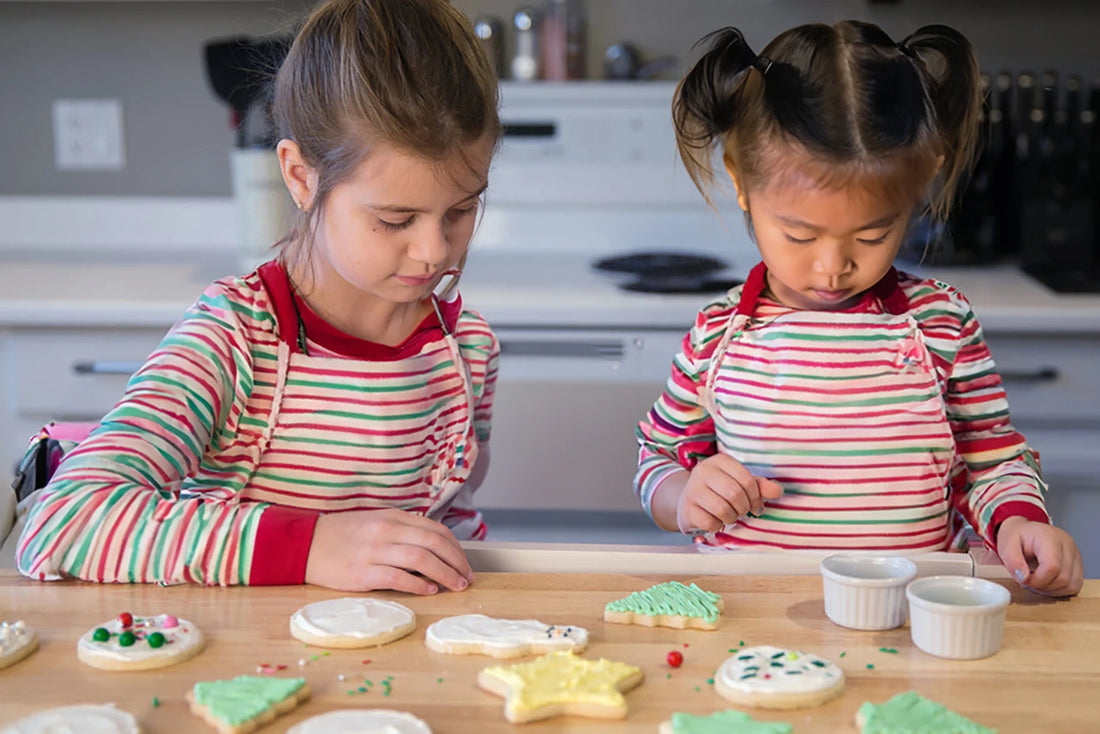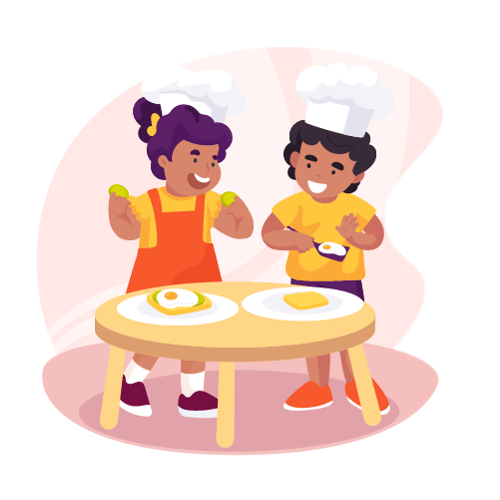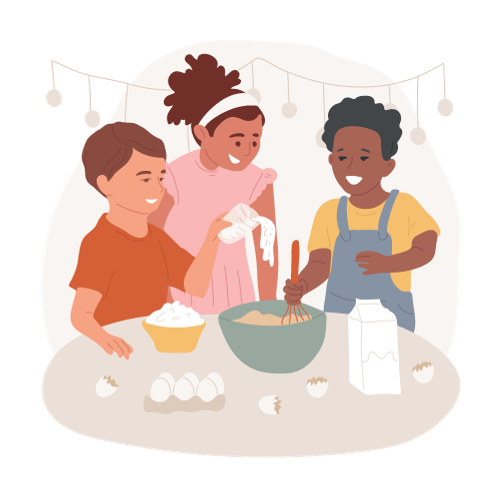Are you ready to embark on a culinary journey with your little ones? The kitchen is not just a place for cooking and baking; it's also a classroom where children can learn valuable life skills, ignite their creativity, and develop a healthy relationship with food. But the question remains: when is the right age to introduce kids to the kitchen?
Some parents believe in starting them young, while others prefer waiting until they are older. In this blog post, we'll explore the factors to consider and provide guidance on finding the perfect age to get your kids started in the kitchen for baking or cooking.
Age-appropriate tasks based on children's developmental stages
Determining the right age to introduce children in the kitchen requires an understanding of developmental stages. Understanding these developmental stages is crucial in gradually introducing kids to the kitchen at an appropriate age, ensuring that they gain confidence and competence while also promoting a positive relationship with food and cooking throughout their lives.
Let's have a look at the typical developmental stages in children and how they relate to their capabilities in the kitchen:
Toddlers (2-3 years old): The early stirrings of curiosity
At this stage, children can begin to engage in simple kitchen activities with close supervision. Activities such as stirring, pouring, and sorting can help build fine motor skills and introduce them to the kitchen environment.
Preschoolers (4-5 years old): Mixing, measuring, and more
As children develop better hand-eye coordination, they can participate in more hands-on activities such as measuring ingredients, mixing batters, and using cookie cutters. These activities not only foster creativity but also introduce basic math concepts.
Early elementary (6-8 years old): Mastering basic skills
Children in this age group can start to grasp more complex cooking techniques. With supervision, they can learn to chop, peel, and follow simple recipes. This stage is ideal for introducing foundational cooking skills that will serve them well in the future.
Tweens and teens (9 years old and above): Independent culinary adventures
Older children can gradually take on more responsibility in the kitchen. They can start planning and preparing simple meals with guidance, gaining a deeper understanding of ingredients, flavours, and kitchen safety.
Factors to consider
Apart from their age and developmental stage, there are several important factors that may also influence a child's readiness in the kitchen.
Individual readiness
Firstly, it's essential to assess the child's level of maturity and ability to follow instructions. While some children may show an early interest in cooking and exhibit good listening skills, others might need more time before they are ready to safely navigate the kitchen environment. Every child is unique, and readiness for kitchen activities varies. Consider your child's interest, attention span, and ability to follow instructions.
Safety first
Another factor to take into account is the child's physical capability. Can they comfortably reach countertops, handle utensils, and understand basic safety rules? Understanding a child’s physical development is critical when deciding if they are ready to engage in cooking activities without putting themselves at risk of injury or accidents. The kitchen can be a busy and potentially hazardous space. Therefore, it's also important that your child understands and follows safety rules, and that an adult is always present to supervise younger children during kitchen activities.
Patience and enjoyment
Gauge your child's patience and enjoyment during kitchen activities. If they show interest and enthusiasm, it's a good sign that they are ready for more involved culinary adventures. Furthermore, parents or guardians should assess their own schedule and availability for teaching kids about baking, cooking and meal preparation. Introducing children to the kitchen requires time and patience; therefore, it's important for adults to have realistic expectations about how much time they can devote to this endeavor amidst other responsibilities.
Parent's readiness
Additionally, parents should consider their own comfort level with having their children involved in food preparation activities. Apart from having patience and realistic expectations as mentioned above, it's crucial for adults to feel confident in supervising kids in the kitchen and providing appropriate guidance.
In the end, there's no one-size-fits-all answer to the question of when to start your kids in the kitchen. It's a gradual process that evolves with their developmental stages, interests, and your comfort level as a parent. From the first playful stirrings of curiosity to independent culinary adventures, the kitchen can be a place of shared joy and learning for the entire family.
Alternatively, parents can consider enrolling their children in baking and cooking classes instead of teaching at home. The experienced guidance provided by professional instructors and access to equipment and ingredients all prepared for you contribute to creating an enriching educational experience for young aspiring chefs. Additionally, the structured nature of a class setting allows children to learn in a more organised manner, building foundational skills and knowledge that may not be easily achieved through informal home instruction.
Ready to get your child started in the kitchen? Consider enrolling them in our baking and cooking classes for kids! Designed for kids aged from 5 to 12 years old, our kids baking and cooking classes offer a safe and conducive environment for children to explore and grow their culinary interests. Check out our cooking and baking classes for kids and enrol your child in a fun and creative class today.



